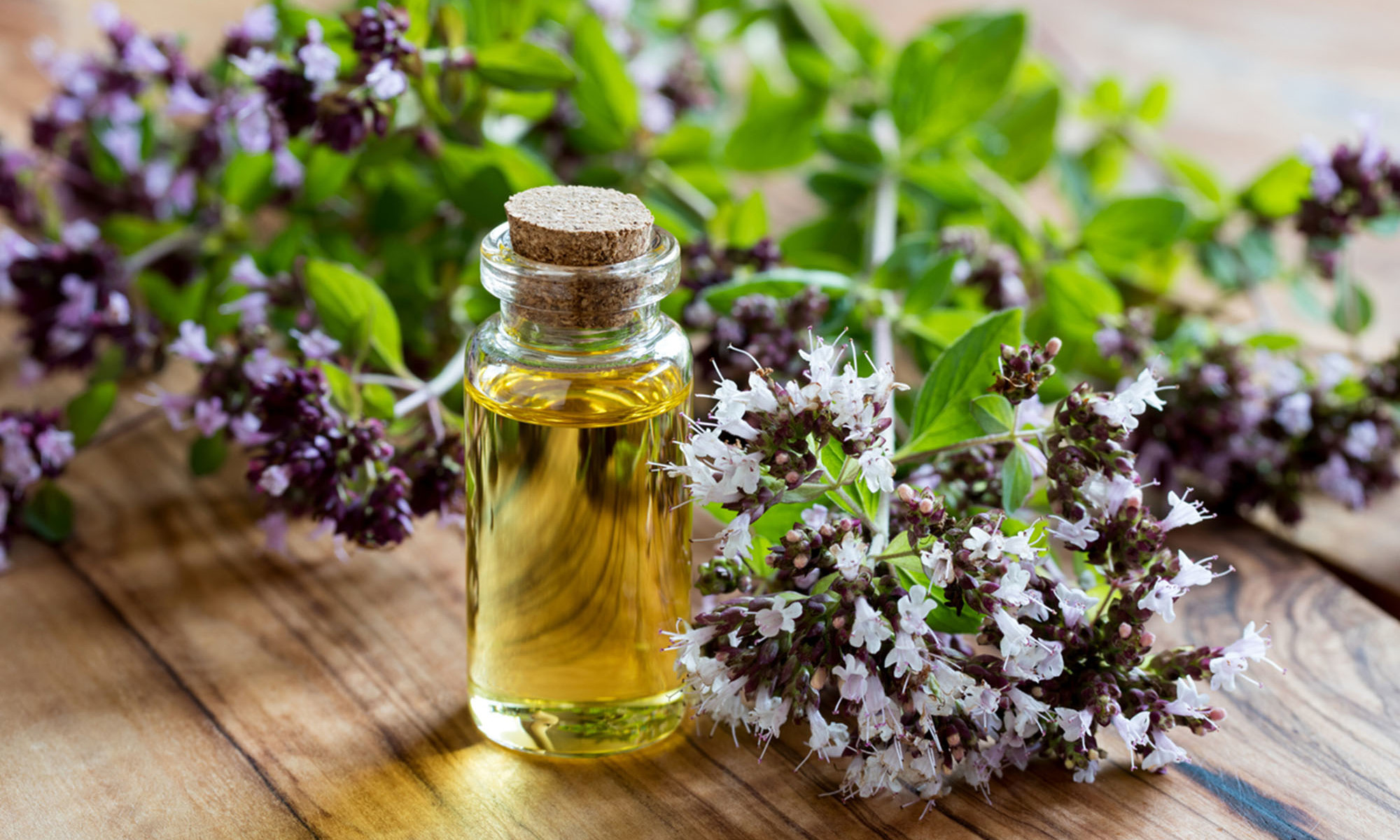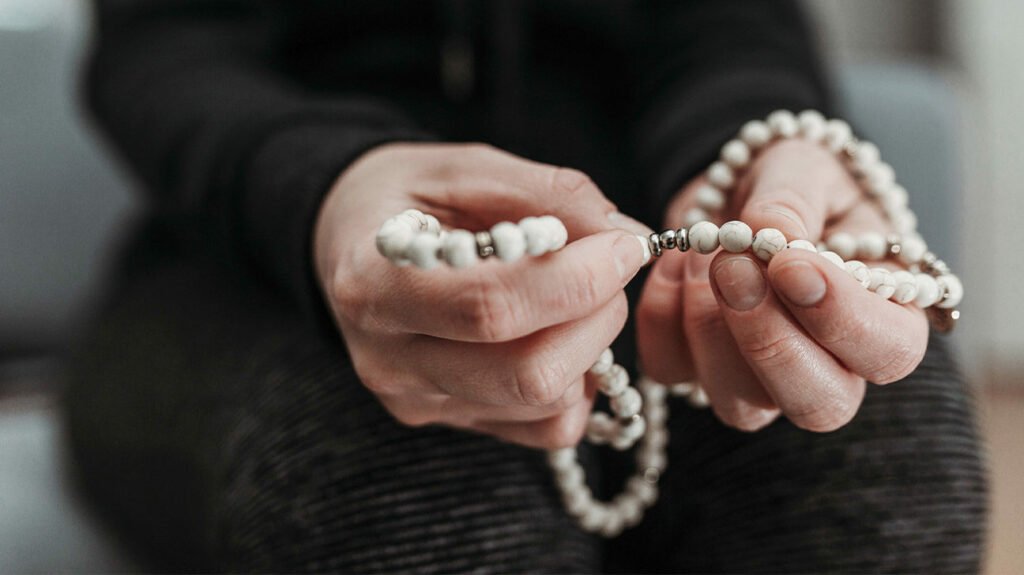This Anti-Inflammatory Herb Is A+ For Your Gut Health: Here's How To Take It
Who knew the pizza staple was so nutritious?


mbg Contributor
Donavyn Coffey is a Kentucky-based health and science journalist. She's a graduate of NYU's Science Health and Environmental Reporting Program and has a background in molecular nutrition and genetics.

Expert review by
Lauren Torrisi-Gorra, M.S., RD
Registered Dietitian
Lauren Torrisi-Gorra is a Registered Dietitian with a Grand Diplôme in Culinary Arts from the French Culinary Institute and a bachelor’s in Communication and Media Studies from Fordham University. After a decade working in the culinary and media worlds, Lauren pursued her ultimate passion and received her master's degree in Clinical Nutrition and Dietetics at New York University.
Image by Madeleine Steinbach / iStock December 22, 2022 Our editors have independently chosen the products listed on this page. If you purchase something mentioned in this article, we may Oregano is best known as a hallmark herb of Italian cuisine. But the leafy plant offers more than flavor. It contains phytochemicals with antimicrobial and antioxidant compounds that can fight bacteria and inflammation1. Manufacturers extract those valuable compounds—using alcohol or carbon dioxide2—to make oil of oregano, a more concentrated delivery of the plant's bioactives. Here we'll break down how oregano oil is made, its health benefits and side effects, and how to incorporate it into your day.
Advertisement
This ad is displayed using third party content and we do not control its accessibility features.
Oregano oil (oil of oregano) vs. oregano essential oil.
Oil of oregano, also known as oregano extract or oregano oil, can be consumed orally as a supplement. It’s important to note that it is different from oregano essential oil.
Oregano essential oil, which is made by steaming and distilling dried oregano leaves, is meant to be diffused or mixed with a carrier oil and applied topically. But it should not be eaten on its own. Essential oils are very potent, and ingesting them in an unencapsulated form can damage the intestinal lining.
You can read more about how to safely use essential oils here, but the remainder of this article will focus on oregano oil that can be taken orally as a supplement.
Components of oregano oil.
The beneficial components in oregano oil change depending on how the extraction is done and where the oregano was grown, says Melissa Majumdar, a dietitian and spokesperson for the Academy of Nutrition and Dietetics.
However, here are some of the most common components you'll find in oregano oil:
Advertisement
This ad is displayed using third party content and we do not control its accessibility features.
Benefits of oregano oil.
The potential benefits of oregano oil range from acne and asthma to psoriasis and wound healing.
In traditional medicine6, oregano was used for respiratory conditions, like bronchitis or a cough, diarrhea, inflammation, and menstrual disorders. However, scientific literature has not caught up to support these uses in humans.
Here is some of the preliminary research on oregano oil along with its potential benefits:
1.
It promotes a healthy gut microbiome.
Advertisement
This ad is displayed using third party content and we do not control its accessibility features.
Oregano oil has been shown to have antimicrobial properties in preliminary research. In one study, oregano oil showed significant antibacterial activity10 against 11 microbes that were resistant to multiple antibiotics. Both carvacrol and thymol have also been studied to work with antibiotics5 to overcome resistant bacteria.
For its antibacterial effects, functional nutrition expert English Goldsborough, FNTP often recommends oregano oil to clients who are battling mold exposure, a sinus infection, or a cough or sore throat.
Advertisement
This ad is displayed using third party content and we do not control its accessibility features.
Inflammation is a driving factor for a variety of conditions12, including arthritis, psoriasis, cancer and type 1 diabetes. Antioxidants found in oregano oil can combat inflammation, and potentially, help mitigate related diseases.
Lab studies13 have shown that pretreating cells with oregano extract resulted in a protective effect against oxidative stress—the oxygen-dependent process that drives inflammation.
In mice, the anti-inflammatory effects of oregano extract prevented14 animals predisposed to type 1 diabetes—an autoimmune inflammatory disorder—from developing the disease.
Oregano’s ability to temper inflammation shows promise in cancer treatment studies. In another mouse-model study15, oregano suppressed tumor growth and appearance. And in human breast cancer cells16, the oregano species with the most antioxidant activity significantly reduced cancer cell proliferation.
Does oregano oil boost brain health? According to one study17, oregano extract can elevate mood and have an anti-depressive effect in animals.
In rats, two weeks of consuming low doses of carvacrol increased serotonin and dopamine18 levels which suggests it could improve feelings of well-being. In a separate study, oregano extract fed to rats increased the expression of genes related to cognitive function and memory even when the rats were under chronic stress. But again, these are preclinical animal studies, so more research in humans is needed.
Advertisement
This ad is displayed using third party content and we do not control its accessibility features.
How to incorporate oregano oil into your day.
You'll most often find oregano oil as a capsule or tincture combined with a carrier oil like olive oil. While there is no standard dose, the most common dosage of oregano oil is 30-60 mg daily, depending on the manufacturer. Follow the packaging instructions when using a new product.
Side effects of oregano oil.
Oregano leaf is “likely safe” in the quantities commonly occurring in foods, but oil of oregano supplements are possibly unsafe for pregnant and breastfeeding women, according to the National Library of Medicine.
Large doses of oregano might also increase risk of bleeding and therefore are unsafe for surgery patients. If you’re scheduled for surgery, stop all oregano oil supplementation at least two weeks before.
Oregano oil can also interact with diabetes medications and blood thinners. So, it's important to talk to your healthcare provider before you add oregano oil (and any supplement) to your routine.
Oregano oil may also cause gastrointestinal upset and rash in some people, Majumdar says. If this happens to you, it's best to stop and try an alternative.
The takeaway.
If you’re looking to reset your gut, clear up your skin, or reduce inflammation, oregano oil may be worth a try. It is also a powerhouse against bacteria and could be good to have on hand when you’re feeling sick. At the end of the day, oregano is only one of many herbs that have impressive health qualities to their name; learn more about other immune-supporting plants here.
If you are pregnant, breastfeeding, or taking medications, consult with your doctor before starting a supplement routine. It is always optimal to consult with a health care provider when considering what supplements are right for you.
And do you want to turn your passion for wellbeing into a fulfilling career? Become a Certified Health Coach! Learn more here.

 Lynk
Lynk 































